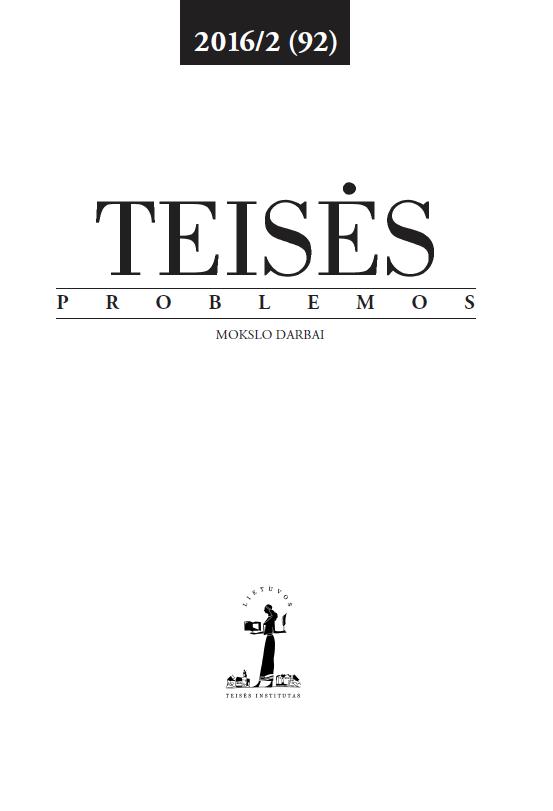Bendros pertvarkymo valdybos įgaliojimai skolintų vertybinių popierių bylos kontekste
Powers of the Single Resolution Board in the Context of the Short-selling Case
Author(s): Audronė SteiblytėSubject(s): Law on Economics, EU-Legislation
Published by: Lietuvos teisės institutas
Summary/Abstract: With the creation of the second pillar of the Banking Union, a handful of important decisions has been entrusted to the Single Resolution Board (SRB), which has the status of an EU agency. This delegation of executive powers to the newly created EU agency takes place in the wake the Court of Justice revisiting its jurisprudence on EU agencies in the Short-selling judgment, C-270/12. This article aims at examining the mandate provided to the SRB in the context of the Short-selling judgment, and in particular, at analysing whether the granting of discretionary implementing powers to this agency complies with Article 114 TFEU and whether those powers are well framed by conditions and criteria that no scope is left for abuse of the delegation. The article also briefly addresses the issue of such implementing powers in the light of Articles 290 and 291 TFEU. The author focuses on the decisions adopting resolution schemes for failing or likely to fail banks as those SRB decisions are supposed to have the biggest impact on banks, their creditors, shareholders and depositors. The Short-selling case confirms that the approximation of national laws might be insufficient to achieve the goal of a uniformly functioning internal market and for that reason it might be necessary to entrust an EU agency with some executory powers for contributing to the implementation of the carried out approximation. Decisions of the SRB prevent differences, which might easily occur if national resolution authorities were to continue adopting bank resolution decisions. The different national treatment of failing banks could create obstacles for the smooth functioning of the internal market. The resolution decisions, taken by the SRB in its executive session, have few elements of democratic scrutiny, therefore in order to ensure that those decisions comply with the Meroni doctrine that has been further developed in the Short-selling judgement, Regulation (EU) No 806/2014 foresees that the Commission and the Council are also involved in approving resolution schemes of failing of likely to fail banks. However, the very short period given for these two EU institutions to examine the bank resolution schemes and the high technical complexity of bank resolution issues do not rule out the probability that the review could be rather formalistic and focus only on a limited number of the most politically delicate issues. In its Short-selling judgment the Court of Justice did not agree with the opinion of the Advocate General N. Jääskinen and maintained that Article 291 TFEU did not apply to the decisions adopted by EU agencies. It therefore follows that the control mechanism, foreseen in Article 291(3) TFEU does not apply to such decisions and the control of implementing powers delegated to EU agencies such as the SRB must be duly envisaged at the moment of delegation, i.e. in Regulation (EU) No 806/2014 itself. The author reaches a conclusion that the mechanisms put in place by Regulation (EU) No 806/2014 in order to ensure the political control of the discretionary implementing powers granted to the SRB comply with the parameters set out by the Court of Justice in the Short-selling judgment.
Journal: Teisės problemos
- Issue Year: 2016
- Issue No: 92 (2)
- Page Range: 45-68
- Page Count: 24
- Language: Lithuanian

